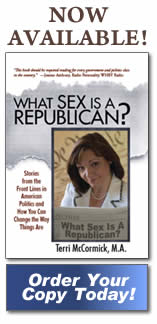 American history has repeated itself with a revolving cycle of leadership between elitist and populist presidents and political leaders. As Jeffrey Bell notes, “Throughout history the presence of elites appears to be universal. Civilization is a society which generates elites.”15 In fact, throughout most of American history political equality was so insignificant that the debate between elitism and populism didn’t matter.
American history has repeated itself with a revolving cycle of leadership between elitist and populist presidents and political leaders. As Jeffrey Bell notes, “Throughout history the presence of elites appears to be universal. Civilization is a society which generates elites.”15 In fact, throughout most of American history political equality was so insignificant that the debate between elitism and populism didn’t matter.
It is only with this great experiment in American politics that the light of populism has shifted the power of governance from one political party to the other. After the Nixon resignation; after the Jimmy Carter Iran hostage crisis; after the Clinton disgrace; and now after the indictments and felonies throughout the Republican Party, the torch of populism has passed and along with it, the mantle of majority party power in our state and federal capitols.
Time and again, as Jefferson predicted, a revolution has been led by the people who have demanded change in the behavior of the men and women they elect to represent them. The mystique that is the American public is quite simple. Americans would like the same work ethic, honesty and sense of fairness shown by politicians that they show in their own daily lives. The American people have come to expect the same opportunities for themselves and their families in education, the economy and national security. It is the American legacy that grants all of us our inalienable rights to life, liberty and the pursuit of happiness that we have all come to know and rely upon.
Each and every day, the people in our great nation lead from the back row. They lead in providing American-made products with pride and hard work. They lead by volunteering as firefighters in their small towns. They lead by showing up in their churches and giving a helping hand when someone is in need. This is what the people expect of politicians. Populism is the political ideology that says demos cratia, from the Greek, “people rule.”
MACHIAVELLIAN ELITIST STRATEGIES
It was not surprising that the American Founding Fathers found the European courts as filled with elitist games of intrigue and power. Under Machiavelli’s political philosophy, politics is no longer the quest to do what is good or right; it, instead, is the pursuit of total control and power. Political good will and a moral sense of leadership is considered weak in this system. Machiavelli writes that it is necessary for a young successful “prince” to learn how to not be good and to be able to break promises, to lie, cheat and steal.
Machiavelli pronounced that two tools were necessary to command men’s behavior and thus to control humanity: the pen and the sword—or propaganda and arms. Toward this end, he believed that man is inherently selfish, and that all goods are taken at another’s expense, and man behaves only by use of force. If man is inherently selfish, then only fear can effectively control him. As an example, Machiavellian wrote in 1494 that the Latin virtues meant power. Niccolo Machiavelli was explicit that one achieves power through wretchedness, cruelty and fraud.
THE ELITIST PUPPET CULTURE
If power is placed in the hands of the few, they maintain power by coercing a pseudo loyalty from a group of individuals who consider themselves lieutenants. These loyal followers. or Machiavelli lieutenants, are recruited because of their weakness and vulnerabilities, which makes them easier to control.16 These lieutenants then are the carriers of information to their leader, as well as the purveyors of threats to those who question authority. In a free society, this notion of physical and emotional servitude to a party leader due to fear is inconceivable, yet I was informed of its existence by a well-respected lobbyist in 2004. I will refer to these lieutenants for their respective party machines as puppets.
The puppets, spies and other cast of characters from Machiavelli’s The Prince function in our legislative bodies around this country and mirror a dark sameness. That sameness does not value loyalty from the lens of a populist or public servant; it does not recognize the greater good. Rather, these lieutenants and puppets form a secret bond, operating out of a fear of retaliation and punishment by their political class handlers.
One gray day in Madison at my capitol office brought this point home. Jared, my chief of staff for two years at this time, had been my mock-trial student several years prior to his employment as my research analyst at the state capitol. He was gifted in his ability to not only research policy issues but also in his ability to size up situations and people. His danger meter was going off that day as I picked up the phone.
“Representative, can you take this phone call from the insurance lobby?” Jared hesitantly inquired.
“Absolutely,” I said, “This man is going to need to talk to us about the All Sums legislation that the paper companies are trying to push through the House Insurance Committee.” After speaking with the insurance lobbyist, I explained to Jared that this man had some information for me that he could not tell me over the phone or in our offices. “Jared, I need to go across the street to meet this guy,” I began.
“In this rain? Can you trust this guy?” Jared inquired with more than an element of concern in his voice.
With less than a convincing tone, I responded, “I believe so. Besides, what do we have to lose? This guy is still talking to us.”
The current ban on our legislative office from all lobbyists was a move to keep any support of my ideas or my run for Congress from finding legs. I was curious about what this man had to say—after all, he was courageous enough to break this ban.
“Don’t worry, Jared, I will be all right,” I said, brushing off the apparent intrigue in the clandestine meeting.
Near the intersection of North Pinckney and East Washington, I found my contact, dressed in a trench coat, ducking under a canopy while carrying a large black umbrella. We looked like a scene from The Spy Who Came in from the Cold, a novel written about the cold war. As I approached him, I couldn’t help but think …what next?…To continue reading this book, get your copy of “What Sex is a Republican” in paperback or Kindle edition on Amazon.



